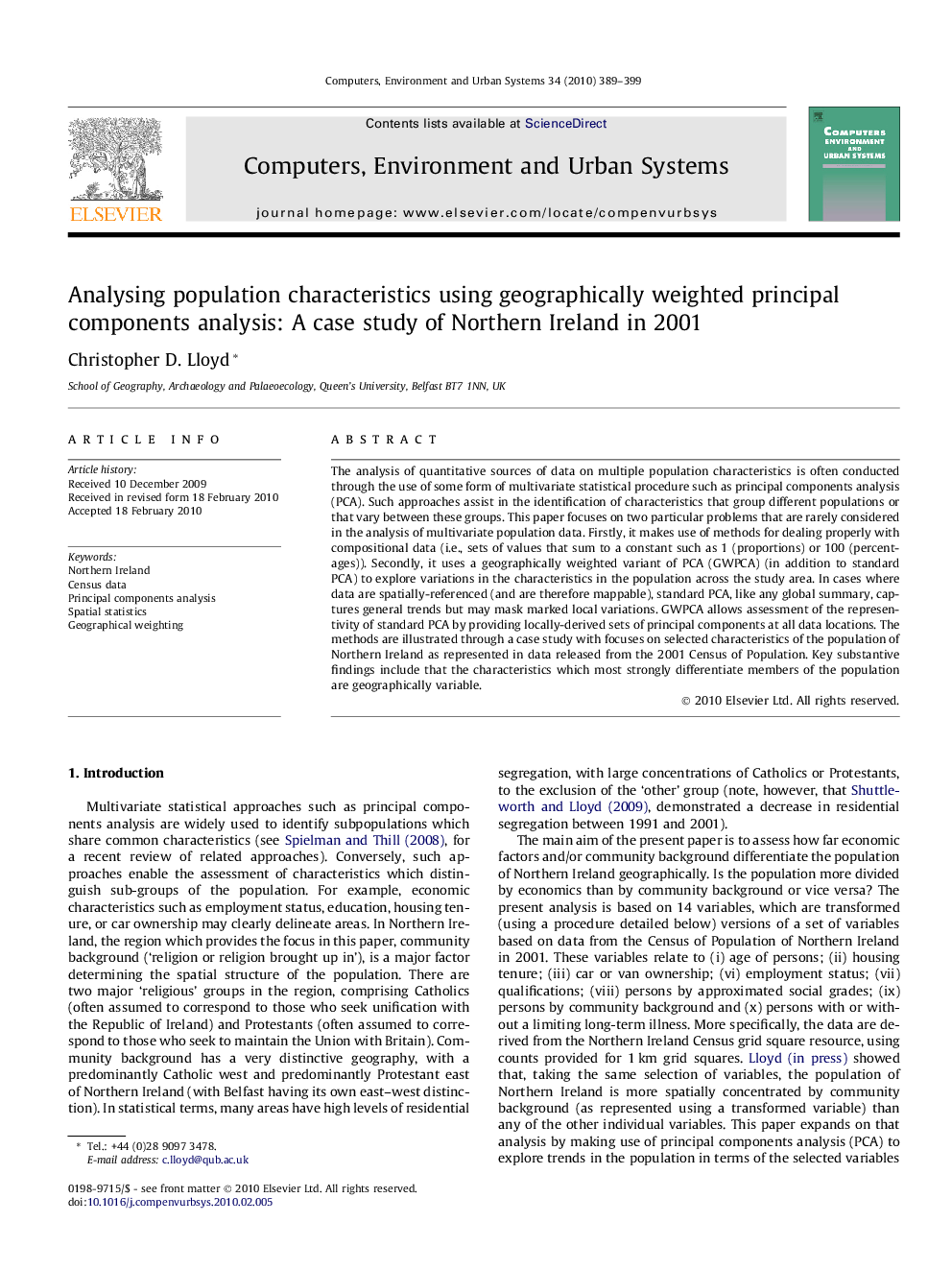| Article ID | Journal | Published Year | Pages | File Type |
|---|---|---|---|---|
| 506717 | Computers, Environment and Urban Systems | 2010 | 11 Pages |
The analysis of quantitative sources of data on multiple population characteristics is often conducted through the use of some form of multivariate statistical procedure such as principal components analysis (PCA). Such approaches assist in the identification of characteristics that group different populations or that vary between these groups. This paper focuses on two particular problems that are rarely considered in the analysis of multivariate population data. Firstly, it makes use of methods for dealing properly with compositional data (i.e., sets of values that sum to a constant such as 1 (proportions) or 100 (percentages)). Secondly, it uses a geographically weighted variant of PCA (GWPCA) (in addition to standard PCA) to explore variations in the characteristics in the population across the study area. In cases where data are spatially-referenced (and are therefore mappable), standard PCA, like any global summary, captures general trends but may mask marked local variations. GWPCA allows assessment of the representivity of standard PCA by providing locally-derived sets of principal components at all data locations. The methods are illustrated through a case study with focuses on selected characteristics of the population of Northern Ireland as represented in data released from the 2001 Census of Population. Key substantive findings include that the characteristics which most strongly differentiate members of the population are geographically variable.
